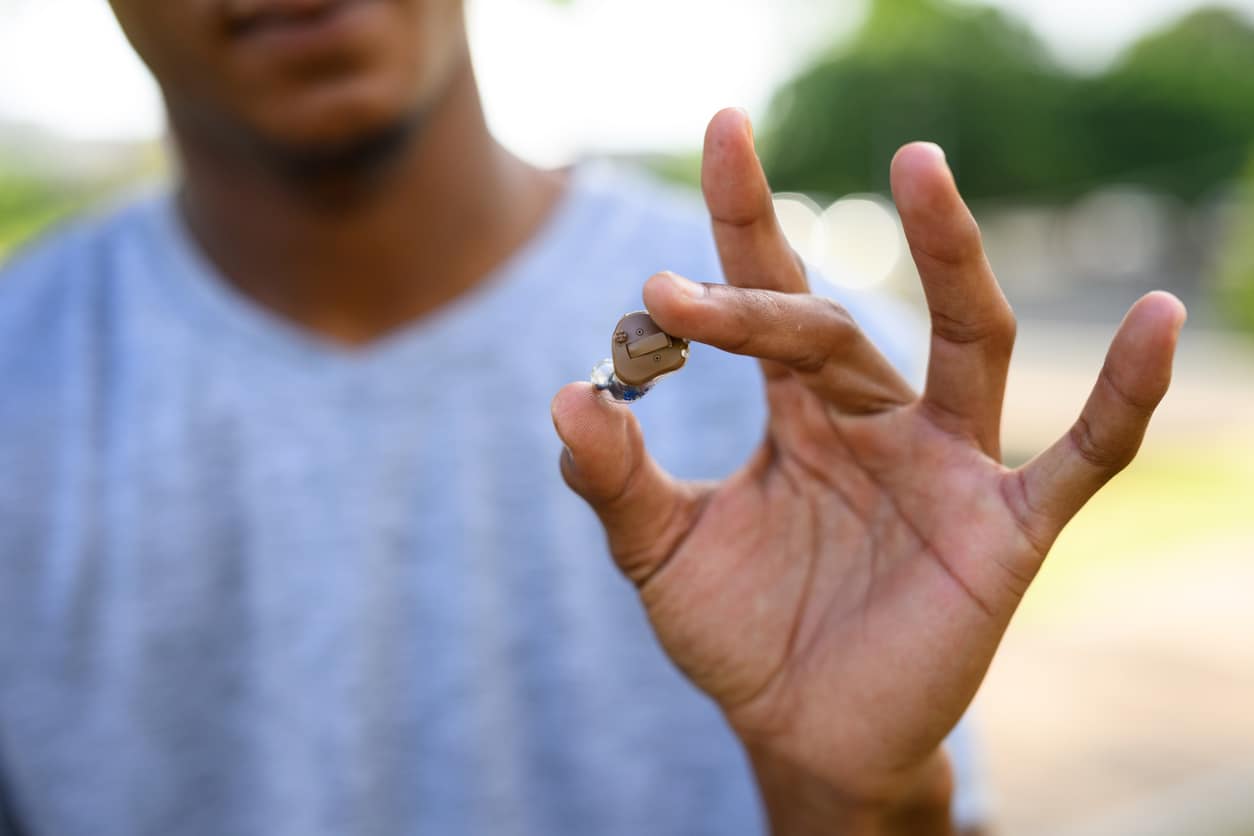With summer whizzing by at seemingly lightning speed, it feels like fall will be upon us in no time. As the seasons change, so should your hearing aid care. With approximately 28.8 million U.S. adults standing to benefit from hearing aids, knowing how to care for these helpful devices is essential. While you’re cramming in as many warm-weather activities as possible before the leaves change, take some time to learn about how the seasons affect your hearing aids and what you can do to keep them safe.
How Does Summer Affect Your Hearing Aids?

With spring and summer come pool parties, trips to Laite Memorial Beach and hikes through Acadia National Park. Amidst all this summer fun, your hearing aids are in danger of water, sweat and dirt exposure, overheating and physical damage. A few ways you can protect your hearing aids during the summer include:
- Watch for rain. A sudden rainstorm can put your devices at risk of water damage. Always carry an umbrella or raincoat if the forecast calls for a downpour.
- Remove your devices before swimming. Water can quickly erode the intricate inner workings of your hearing aids. Remove your devices before swimming and place them away from the water source in a protective case.
- Clean your devices. During the summer, extra sweat and grime can dirty your devices more quickly than usual. Clean your devices nightly and place them in a dehumidifier overnight to keep them well-functioning.
- Keep your devices away from heat. You can’t control the weather, but you can protect your devices from extreme heat exposure. Wear a wide-brimmed hat outside, never store your hearing aids in the car or on a windowsill and keep them out of direct sun whenever possible.
How Do Fall and Winter Affect Your Hearing Aids?
Maine is known for its beautiful falls and snowy winters. With the chillier seasons on their way, there are a few ways you can help safeguard your devices, including:
- Prevent moisture buildup. The heat inside your ears and home, combined with cold outside temperatures, can lead to condensation in your devices. If you notice your devices growing damp or malfunctioning, store them in drying jars or dehumidifiers overnight to prevent buildup and damage.
- Protect against the cold. Similar to how your car may have trouble starting in the winter, the frigid temperatures can zap the life out of your batteries. Check your battery level before leaving the house and carry an extra set of batteries when you need them.
- Beware of snow. Snow is beautiful, but it can also lead to hearing aid damage or loss. Wear earmuffs over your devices when making snow angels, walking around the winter wonderland or joining in a snowball fight to avoid loss or damage.
To learn more about how to care for your hearing aids, contact Gary D. Schwartzberg, Au.D., Doctor of Audiology today to make an appointment with one of our specialists.